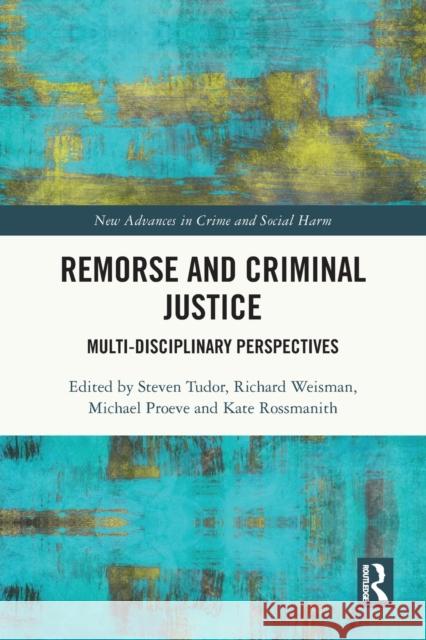Remorse and Criminal Justice: Multi-Disciplinary Perspectives » książka
Remorse and Criminal Justice: Multi-Disciplinary Perspectives
ISBN-13: 9781032104768 / Angielski
Remorse and Criminal Justice: Multi-Disciplinary Perspectives
ISBN-13: 9781032104768 / Angielski
(netto: 213,28 VAT: 5%)
Najniższa cena z 30 dni: 201,44
ok. 16-18 dni roboczych.
Darmowa dostawa!
This multi-disciplinary collection brings together original contributions to present the best of current thinking about the nature and place of remorse in the context of criminal justice. Despite the widespread and long-standing nature of interest in offender remorse, the topic has until recently been peripheral in academic studies. The authors are scholars from North America, the United Kingdom, Europe, South Africa and Australia, from diverse academic disciplines. They reflect on the role of remorse in law, for better or for worse; on how expressions of remorse are affected by the legal contexts in which they arise; and on the impact of these expressions on the individual, the court and the community. The work is divided into four parts – Part I Judging Remorse addresses issues concerning the task of assessing remorse in the courtroom, usually prior to determining sentence. Part II Remorse Beyond the Courtroom explores the place and significance of remorse in various post-court settings. Part III Remorse, War and Social Trauma addresses remorse in the context of political violence and social trauma in the former Yugoslavia and South Africa. Finally, Part IV Reflections seeks to underscore the multi-disciplinary and inter-disciplinary nature of the collection as a whole, through personal and disciplinary reflections on remorse.The work provides a showcase for how diverse academic disciplines can be brought together through a focus on a common topic. As such, the collection will become a standard reference work for further research across a range of disciplines and promote inter-disciplinary dialogue.
This multi-disciplinary collection brings together original contributions to present the best of current thinking about the nature and place of remorse in the context of criminal justice. Despite the widespread and long-standing nature of interest in offender remorse, the topic has until recently been peripheral in academic studies.
The authors are scholars from North America, the United Kingdom, Europe, South Africa and Australia, from diverse academic disciplines. They reflect on the role of remorse in law, for better or for worse; on how expressions of remorse are affected by the legal contexts in which they arise; and on the impact of these expressions on the individual, the court and the community. The work is divided into four parts – Part I Judging Remorse addresses issues concerning the task of assessing remorse in the courtroom, usually prior to determining sentence. Part II Remorse Beyond the Courtroom explores the place and significance of remorse in various post-court settings. Part III Remorse, War and Social Trauma addresses remorse in the context of political violence and social trauma in the former Yugoslavia and South Africa. Finally, Part IV Reflections seeks to underscore the multi-disciplinary and inter-disciplinary nature of the collection as a whole, through personal and disciplinary reflections on remorse.
The work provides a showcase for how diverse academic disciplines can be brought together through a focus on a common topic. As such, the collection will become a standard reference work for further research across a range of disciplines and promote inter-disciplinary dialogue.











